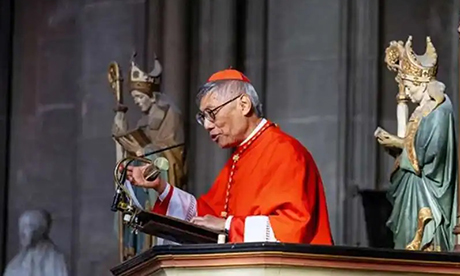Cardinal Stephen Chow of Hong Kong has urged the Catholic Church to engage in dialogue with China to ensure its presence aligns with Chinese culture.
Speaking at a conference in Rome on 16th-century Jesuit missionary Father Matteo Ricci, Chow emphasised the need for collaboration with China’s ruling and intellectual class amid ongoing efforts to “sinicize” the church in China.
Chow (pictured) noted that Ricci, renowned for his ability to bridge Christianity with Chinese culture, succeeded in presenting Christianity as a compatible belief rather than a threat.
“Christianity was not seen as a heresy to Chinese culture, but a novel teaching compatible with Chinese culture.”
However, Chow highlighted that the church’s later prohibition of ancestor worship led to government suppression as it clashed with a key cultural value.
Under communist rule, particularly in its early years, the Catholic Church faced severe oppression. Efforts to purge Western influences as part of forming a national identity resulted in the church being viewed as foreign. “And unfortunately, the Catholic Church was seen as a part of the Western world” the cardinal explained.
Constructive dialogue
Chow stressed that current efforts to “sinicize” the church require constructive dialogue with China.
“Maybe there is a way that the church in China can really be a Chinese church. If we do it well and pray to the Holy Spirit to enlighten both sides” Chow said. “The Holy Spirit is not restricted to Catholics, and it is open to the truth.”
Chow expressed optimism that the Church could harmonise with Chinese culture through prayer and collaboration. He emphasised the importance of maintaining the Church’s core beliefs while fostering integration.
“Sinicization is not going to go away” he said. “It is here, so we need to engage in dialogue.”
Chow said that beyond discussions about inculturation, “the Catholic Church, as well as the Protestant Church, have always been seen until now as foreign religions”. As a result “the government is stepping in to say ‘You’re going to become a Chinese religion’, but of course we may not agree on the same process, so that’s why we need dialogue”.
Sources
